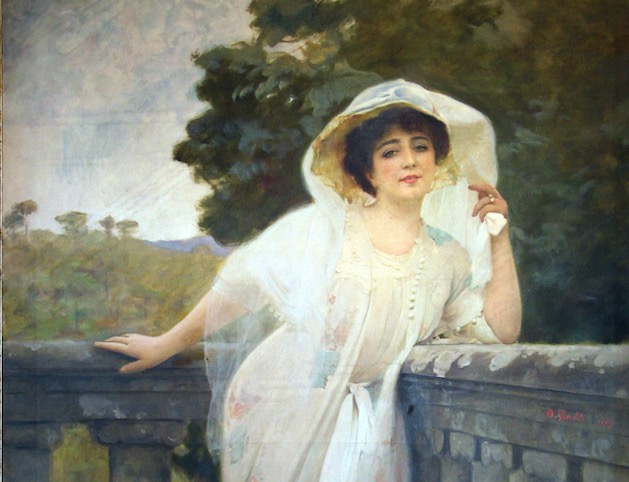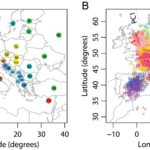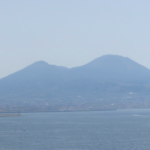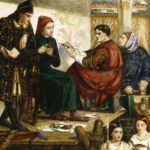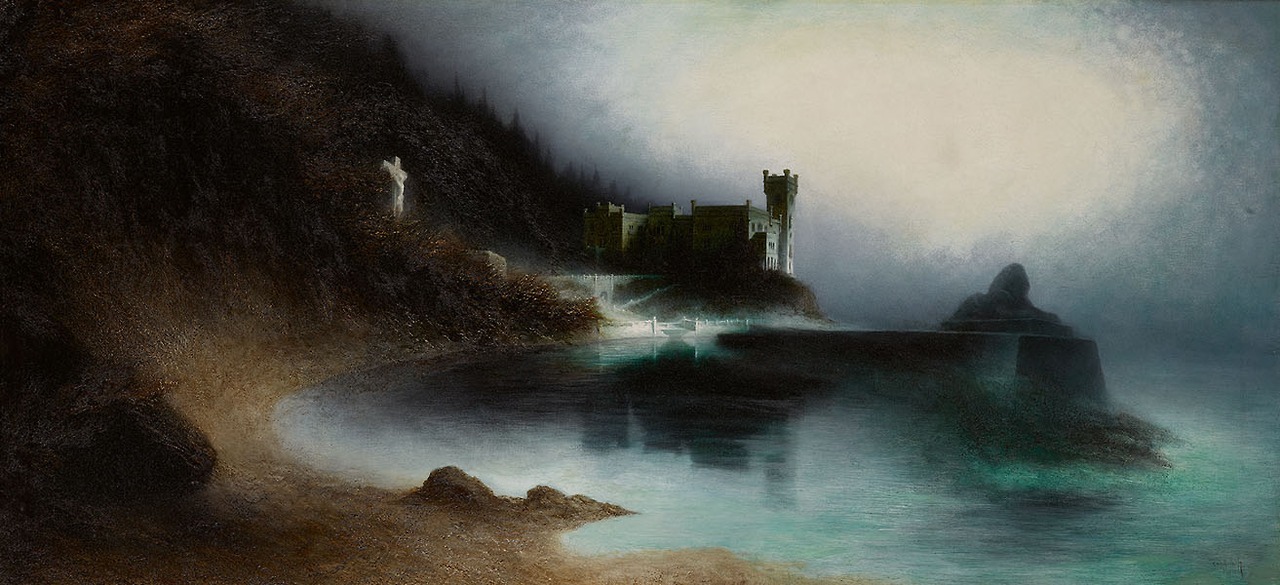
Giosuè Carducci and Miramar Castle
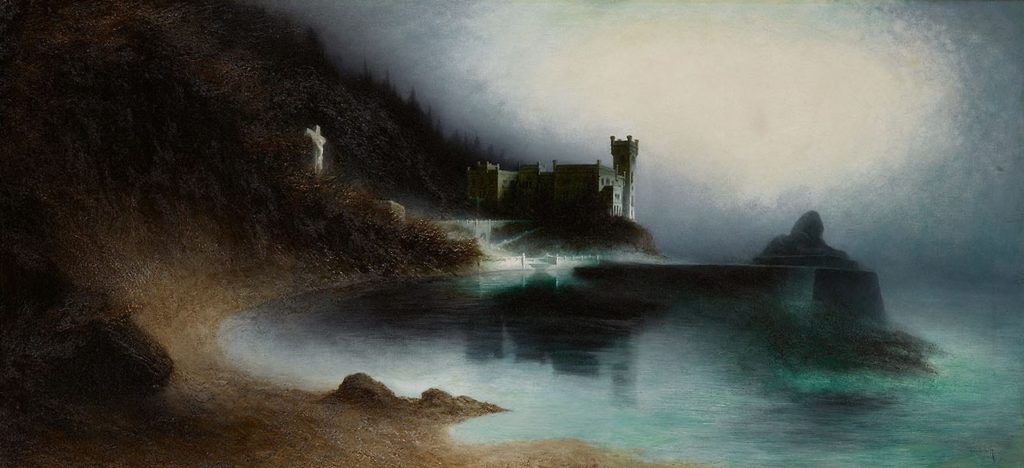
Mexico gifted Italy the tomato. Italy sent back an Emperor. It wasn’t a fair exchange. And it wasn’t welcomed. The story begins in Miramar Castle and Giosuè Carducci is our story teller and his poem Miramar can be read below. Carducci came to the castle when it was already a place where ghosts whisper of the past. However the journey that took him to the castle passes through one of the most turbulent eras of Italy’s history.
Carducci was born in 1835 and lived to see the birth of the new country of Italy. However he was not just a passive spectator. He was a passionate advocate of the Risorgimento. Initially a supporter of the cause of Piedmont, he later became a republican, critical of what he saw as compromises of the monarchy. He was harsh in his polemics but often beautiful in his poetry.

It was not until July 1878 that Carducci came to the Castle of Miramar. By then the Austro-Hungarian Empire had been driven from Italy. As Carducci entered, a great tempest raged outside the castle. Wandering its halls, he came to Emperor Maximilian’s study. The Emperor was no more. On his desk was a half read book of Castilian romances. Portraits of Dante and Goethe adorned the room. On the walls were inscribed Latin maxims, among them, “poisons are hidden under sweet honey” (Ovid) and “there is no easy path from the earth to the stars” (Seneca).
Maximilian was an Archduke and the brother of the Austro-Hungarian Emperor. A life of wealth and privilege stretched out before him. At Miramar, overlooking the Adriatic Sea, Maximilian was building a fabulous home for himself and his wife Carlotta.
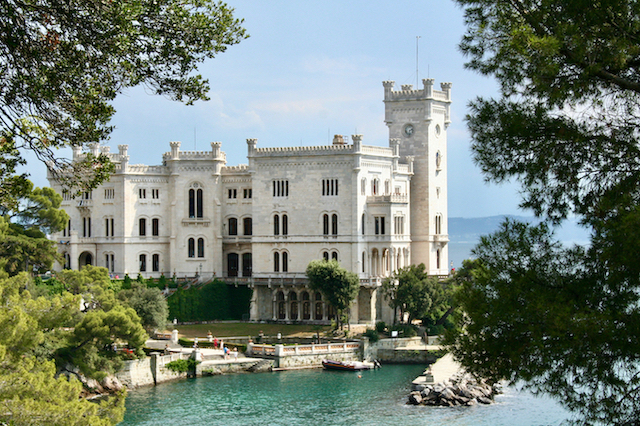
The castle was not yet complete when Maximilian took up a foolish venture to become Emperor of Mexico. It took representatives of landed interests in Mexico and the diplomatic manoeuvres of the French Emperor, four years to convince Maximilian, but in the end the decision was made. In 1864 Maximilian and Carlotta set off together from the castle to great fanfare onboard the frigate Novara (a vessel equiped with both sail and steam engine).
By 1867 Maximilian was dead, executed by a revolutionary firing squad.
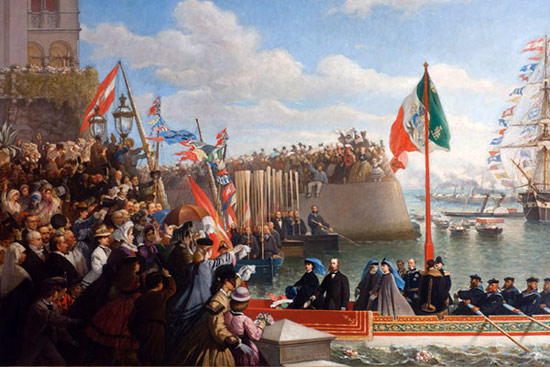
Giosuè Carducci captures the story in his poem, Miramare. In 1906 Carducci won a Nobel Prize in Literature for his poetry, including the collection Odi Barbare, in which the poem Miramare is found.
Miramare by Giosuè Carducci
(translated by Michael Curtotti)
| Miramar, white towers Gloom-darkened By rain-soaked skies, Like flocks of sinister birds Come the clouds | O Miramare, a le tue bianche torri attediate per lo ciel piovorno fósche con volo di sinistri augelli vengon le nubi. |
| Miramar, waves crash Against granite grey. Grievances of embittered souls Rising from the forbidding deep. | O Miramare, contro i tuoi graniti grige dal torvo pelago salendo con un rimbrotto d’anime crucciose battono l’onde. |
| Melancholy: shadowed in mist. The turreted cities of the gulf Muggia, Pirano, Egida and Parenzo Jewels of the sea, look on. | Meste ne l’ombra de le nubi a’ golfi stanno guardando le città turrite, Muggia e Pirano ed Egida e Parenzo, gemme del mare; |
| And the sea heaps up Angered laments Against this rocky spur This Hapsburg bastion Looking to two vistas. | e tutte il mare spinge le mugghianti collere a questo bastion di scogli onde t’affacci a le due viste d’Adria, rocca d’Absburgo; |
| And the heavens rumble to Nabresina Along the rusted shore And lightning flashes, crowning misty Trieste, she raises her head. | e tona il cielo a Nabresina lungo la ferrugigna costa, e di baleni Trieste in fondo coronata il capo leva tra’ nembi. |
| Oh, how all rejoiced, that April morn When fair-haired Emperor With comely spouse Unfurled his vessel’s sail | Deh come tutto sorridea quel dolce mattin d’aprile, quando usciva il biondo imperatore, con la bella donna, a navigare! |
| With calm and radiant visage The Empire’s mighty mask And lady’s sky-blue eyes Looking coolly on the sea | A lui dal volto placida raggiava la maschia possa de l’impero: l’occhio de la sua donna cerulo e superbo iva su ‘l mare. |
| Farewell, castle made for happy times, Fruitless flight of fancy for nested love! The fierce wind sweeps lovers Out to vast and empty sea. | Addio, castello pe’ felici giorni nido d’amore costruito in vano! Altra su gli ermi oceani rapisce aura gli sposi. |
| With shining hope They departed its storied halls of triumphs and carven wisdom full To its lord, Dante and Goethe whisper in vain. | Lascian le sale con accesa speme istoriate di trionfi e incise di sapïenza. Dante e Goethe al sire parlano in vano |
| A sphinx, lured him with valiant tales A mirage upon the waves, He stumbled and the book he left Splayed open; half unread. | da le animose tavole: una sfinge l’attrae con vista mobile su l’onde: ei cede, e lascia aperto a mezzo il libro del romanziero. |
| No song of love or mighty deed and chorded guitar of welcome. There in Aztec Spain! So far, the wind did take them. | Oh non d’amore e d’avventura il canto fia che l’accolga e suono di chitarre là ne la Spagna de gli Aztechi! Quale lunga su l’aure |
| Is that mourning of weeping flutes Which sigh from wretched Point Salvore? Is it the dead Venetians? Or ancient Istrian fates that sing? | vien da la trista punta di Salvore nenia tra ‘l roco piangere de’ flutti? Cantano i morti veneti o le vecchie fate istrïane? |
| O but ill you set forth On Mare Nostrum Hapsburg’s son, Aboard the ill-fated Novara The Furies come darkly aboard with you And open wide your sails to the wind | Ahi! mal tu sali sopra il mare nostro, figlio d’Absburgo, la fatal Novara. Teco l’Erinni sale oscura e al vento apre la vela. |
| See the sphinx’s visage transform Feigning retreat as you advance And pallid face of mad Giovanna Against your wife | Vedi la sfinge tramutar sembiante a te d’avanti perfida arretrando! È il viso bianco di Giovanna pazza contro tua moglie. |
| It is Marie Antoinette’s mutilated skull That mocks you. It is Moctezuma’s putrid eyes fixed on you From his enraged yellowed face. | È il teschio mózzo contro te ghignante d’Antonïetta. Con i putridi occhi in te fermati è l’irta faccia gialla di Montezuma. |
| In a vast agave wilderness Never yet stirred by goodly breeze He waits in his pyramid Blazing in livid flames | Tra i boschi immani d’agavi non mai mobili ad aura di benigno vento, sta ne la sua piramide, vampante livide fiamme |
| In tropical darkness, the God Huitzilopolti Smells your blood Farsighted he traverses the endless sea And howls: Come. | per la tenèbra tropicale, il dio Huitzilopotli, che il tuo sangue fiuta, e navigando il pelago co ‘l guardo ulula – Vieni. |
| How long I have waited! The fierce whites stole my kingdom and profaned my temple Come devout victim O nephew of Charles the Fifth | Quant’è che aspetto! La ferocia bianca strussemi il regno ed i miei templi infranse: vieni, devota vittima, o nepote di Carlo quinto. |
| Not I, your cursed and putrid ancestors Or spawn of royal chaos desired You I wanted, and you I reap, Hapsburg flowering anew | Non io gl’infami avoli tuoi di tabe marcenti o arsi di regal furore; te io voleva, io colgo te, rinato fiore d’Absburgo; |
| And to Cuauhtémoc’s great soul Reigning below the Pavilion of the Sun I send you down as sacrifice, O pure, O strong, O fair Maximilian. | e a la grand’alma di Guatimozino regnante sotto il padiglion del sole ti mando inferia, o puro, o forte, o bello Massimiliano. |
Images
The Castle of Miramar, Karl Wilhelm Diefenbach (1851-1913), 1911. The painting includes a sphinx suggesting it illustrates Carducci’s poem.
Miramar Castle, 2012 By Flavio Fiamin – Own work, CC BY-SA 3.0, https://commons.wikimedia.org/w/index.php?curid=21336801
Sources
Maria Santini, Addio, Mio Dolce Amore – La Vita Di Carlotta, Imperatrice del Messico tra etichetta e follia, Simonelli Editori
M. M. McAllen, Maximilian and Carlotta: Europe’s Last Empire in Mexico. Trinity University Press San Antonio 2014
The Nobel Prize in Literature 1906 Award Speech for Giosuè Carducci
Poems of Italy: selection from the odes of Giosuè Carducci, translated by M.W. Arms. New York 1906. Arms own translation of Miramar appears on page 30 and was consulted in preparing the above translation. Another translation of Carducci’s Miramar appeared in the Italica Journal in 1936. William Fletcher Smith Italica, Vol. 13, No. 2 Miramar Palace and was also consulted.
An exploration of Miramar from the perspective of Mexico is provided by José Luis Bernal in “Miramar” o cómo percibió Carducci la muerte de Maximiliano
